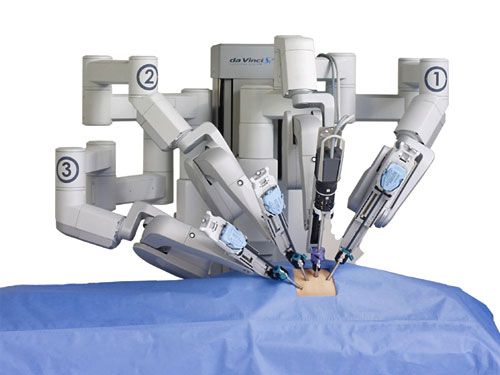
Hospitals across Oklahoma City have invested in a da Vinci surgical robot, a highly marketed robot that can be used to perform a variety of surgeries. I’ve interviewed several doctors who use the robot to perform surgeries, and many of them rave about it.
They say patients recover faster, have fewer complications and leave the hospital faster than patients who don’t have the same kinds of surgeries using the robot.
But there’s a catch to some of their claims — comprehensive data to back it up.
As this article points out, recently published medical research has found that robotic surgery might not always prove to be more beneficial.
In the dozen years since the Da Vinci robot has been approved for surgeries in the United States, it’s been embraced by health care providers and patients alike. Surgeons routinely use the multi-armed metal assistant to remove cancerous prostate glands and uteruses, repair heart valves and perform gastric bypass operations, among many other procedures.
Lately a key study and reports of problems have raised questions about robotic surgery’s safety and cost-effectiveness, leading to a review of the Da Vinci system by the Food and Drug Administration and causing some experts to wonder whether the benefits of undergoing robot-assisted surgery may have been overstated.
To make any claim in medicine that one approach works better than the other, you need a study published in a medical journal that says “Yes, this is very, very true.” Actually, you probably need several studies by different academic institutes that agree and say, “Yes, that study is very, very true, and here’s what we found that says it’s still very, very true.”
Surgeons I’ve talked to with say the da Vinci robot allows them to operate inside a patient and affect the least amount of tissue while inside. And so far, the debate continues, with the U.S. Food and Drug Administration currently reviewing the system.
Complications can occur with any type of surgery, and so far it’s unclear if they are more common in robotic operations. That’s part of what the FDA is trying to find out.
Intuitive Surgical disputes there’s been a true increase in problems and says the rise reflects a change it made last year in the way it reports incidents.
The da Vinci system “has an excellent safety record with over 1.5 million surgeries performed globally, and total adverse event rates have remained low and in line with historical trends,” said company spokeswoman Angela Wonson.
But an upcoming research paper suggests that problems linked with robotic surgery are underreported. They include cases with “catastrophic complications,” said Dr. Martin Makary, a Johns Hopkins surgeon who co-authored the paper.


















